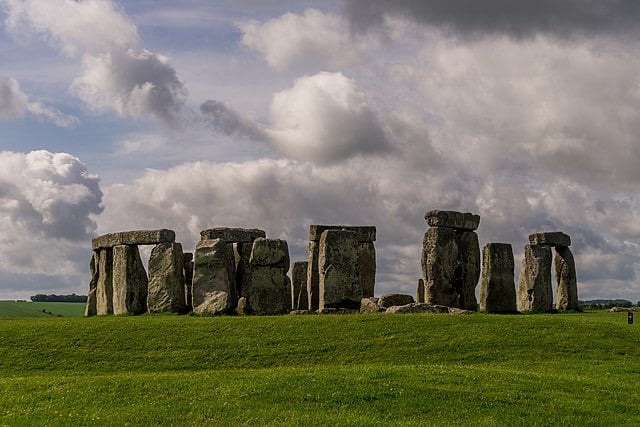A heated debate is taking place across the UK’s education system, ignited by concerns over what is—and isn’t—being taught in schools. According to a new report from a leading think tank, children are increasingly learning “woke” versions of British history, including claims that Black people built Stonehenge and that Roman Emperor Nero married a trans woman. Meanwhile, foundational events like the Battles of Waterloo and Trafalgar are going untaught in many classrooms.
The shift has triggered public backlash, with critics accusing schools of prioritizing ideology over historical accuracy. Education experts and former ministers are now urging a return to a more balanced and evidence-driven curriculum that includes key milestones of British heritage.
The Book Behind the Controversy
At the center of the debate is the children’s book Brilliant Black British History by Atinuke. Widely promoted in UK schools, the book claims that the earliest Britons were Black and that they were responsible for building iconic landmarks like Stonehenge.
“About 6,000 years ago, people with brown skin brought farming – and built Stonehenge!” the book states, aiming to promote representation and diversity in historical narratives. Supporters say it’s a refreshing corrective to the historically whitewashed portrayal of British history. Critics, however, claim it presents speculative interpretations as fact, potentially misleading students.
What the Experts Say About Stonehenge
Archaeological consensus holds that Stonehenge was built by Neolithic people between 3000 BC and 1600 BC. Genetic and isotopic research has shown that the first farmers in Britain came from Anatolia (modern-day Turkey), carrying darker skin tones than modern Europeans—but there’s no evidence they were of African descent or specifically “Black” by today’s racial standards.
Historians also note that attributing Stonehenge to any specific ethnic group with modern racial labels oversimplifies prehistoric realities. “It’s scientifically inappropriate to apply today’s racial constructs to people from thousands of years ago,” says a University of Oxford archaeologist.
Omission of Iconic British Victories
While students are being introduced to new narratives, traditional cornerstones of British history are being sidelined. A report from the Policy Exchange think tank found that only 11% of UK schools teach about the Battle of Waterloo (1815) or the Battle of Trafalgar (1805)—two of the most defining military victories in British history.
The report raises concern that students are missing out on understanding the geopolitical, military, and cultural foundations of modern Britain. Both battles were instrumental in establishing Britain’s 19th-century dominance and shaping Europe’s political map.
What Are UK Students Learning Instead?
Many schools now include lessons on race, gender identity, and colonialism—often incorporating materials from activist-led organizations. One controversial example cited by critics claims that the genital mutilation of Roman slaves was framed as an early form of “gender transition,” a claim experts say lacks historical context and nuance.
In place of traditional chronological history, some schools now teach thematic units like “Identity through the Ages” or “History of Protest,” often at the expense of military and constitutional milestones.
Former Education Leaders Speak Out
Two former UK education secretaries, David Blunkett and Nadhim Zahawi, have criticized the shift. In a joint statement, they urged the Department for Education to mandate a core curriculum covering essential British events from 1066 through the Cold War.
Zahawi, who served under Boris Johnson, said, “We are losing our connection to what made Britain what it is. Understanding our past is not about nationalism; it’s about knowledge.”
Reactions from Teachers and Parents
The shift in teaching has divided educators. Some teachers welcome a more inclusive approach that resonates with a diverse student body. Others argue that the focus on modern social issues is crowding out the fundamentals.
Parents have expressed similar concerns. “My child knows who Marsha P. Johnson is but not Admiral Nelson,” one London parent said. “That’s not education—that’s activism.”
Diversity vs. Accuracy: The Educational Dilemma
Advocates for the current curriculum argue that students should learn a broader, more representative history. But opponents worry that this comes at the cost of truth, clarity, and academic rigor.
“History should reflect the complexity of the past,” said historian David Abulafia, “but it should also be rooted in fact, not ideology.”
Government’s Role and Response
The Department for Education says it supports a broad and balanced history curriculum but does not currently prescribe exact content. However, growing political pressure could force a policy shift in the coming years to reintroduce more traditional historical narratives.
Conclusion
The debate over how history is taught in UK schools is more than just a curriculum discussion—it’s a conversation about national identity, truth, and how best to educate future generations. As the pendulum swings between inclusion and accuracy, educators must find a way to honor both.
11. FAQs
Q1: Did Black people build Stonehenge?
A1: While early Britons may have had darker skin tones, there is no concrete evidence that Stonehenge was built by people of African descent.
Q2: Why aren’t students learning about Waterloo and Trafalgar?
A2: A shift toward thematic teaching has deprioritized traditional military history in favor of modern identity-focused topics.
Q3: Who is Atinuke?
A3: Atinuke is a Nigerian-Welsh author whose book Brilliant Black British History is at the center of the current debate.
Q4: Are these teachings government-mandated?
A4: No. Schools have flexibility in history curriculum, though the Department for Education sets broad guidelines.
Q5: Will the government change the curriculum?
A5: It’s possible. There’s growing political and public pressure to ensure core British history is taught in every school.



